- Home
- Philip Pullman
The Butterfly Tattoo Page 12
The Butterfly Tattoo Read online
Page 12
All the time, underlying everything she did and thought and felt, was the knowledge that Chris was there, there in the shed, there now, at this moment, and that soon Sue would be home, and she could borrow Sue’s bike and go there before Barry got back, and find Chris, and everything would be restored.
The feeling was so strong, the prospect of happiness so certain, that she didn’t hesitate this time to hug Sean and kiss him when she said goodnight. It was just fondness. It was safe to be fond of anyone now.
As she was pouring the boiling water into her coffee mug the phone rang. She jumped and hurried into the hall, where the phone was, only to remember that Sue had told her not to answer it. She got to it just as the answering machine came on. She listened as the cassette clicked on and a girl’s voice spoke.
‘Oh, God, I hate these things. Listen, I’ve got a message for someone named Barry Miller, OK – hang on …’
There was a lot of noise in the background. It sounded as if the caller were at a party. She went on: ‘Sorry. Someone’s buggering about. The message was: Carson’s on his way to the shed right now. Don’t go there, for God’s sake. I think that was it. I’m sorry, I don’t know his name, the guy who asked me to phone. He was in a rush. OK? That’s it. Bye.’
The phone was put down at the other end, and after a few seconds the cassette stopped revolving.
One part of Jenny’s mind was thinking: so that’s how an answering machine works. The other part was filled with a hideous image of a body hanging on a hook with its throat cut: the grotesque fate of the gang members in the story Barry had told her: the death Carson had dealt out to his rivals.
And Chris was there in the shed.
‘Oh, God,’ she said quietly, looking up the stairs to the lighted landing and Sean’s half-open door. She couldn’t leave him; she was being trusted to look after him. But surely Sue would be back before long, and meanwhile …
She tore herself away from the hall and ran into the kitchen. Should she leave a note? It would take too long. In the little narrow carport, next to a wheelbarrow and a Black & Decker Workmate and a lot of Sean’s clutter, stood Sue’s bicycle. Less than a minute after the phone had first rung, Jenny was riding hard along the road to Oxford, standing up, pounding the pedals.
As he drew closer to his own home Chris slowed down. What was he doing? Where was he going? He’d been fooled, easily and completely fooled by someone who knew exactly what arguments he’d listen to. He’d never dreamed he was so stupid, so naive. But what was he going to do about it?
He stopped and pulled the bike on to the pavement, wheeling it along as he tried to sort out the terrible confusion his thoughts were in.
First, how true did he think Barry’s story was? Was Carson, or Fletcher, really likely to kill him? Impossible to answer. He’d heard both men; one of them must have been lying. But did Fletcher, or Carson, seem like a killer? Or did Barry seem like a terrorist? Everything looked equally shadowy and unlikely and askew.
And second, insistently: What was he going to do about it? Chase up there on the bike … and then what? Shouldn’t he call the police?
He was at the corner of his road. Only a hundred yards away was his house, and his mother, and Mike; and although Mike was a wimp, he wasn’t a fool. Chris had never needed someone’s good advice so much.
He left his bike beside the back door and went in. The kitchen was dark, but the television was on in the living room. He paused in the hall, unsure, and then went back to the phone in the kitchen. At least he could ring Barry’s number to make sure that girl had given the message.
The phone rang twice, and there came the click of an answering machine. His heart fell.
‘Hello. Barry Miller speaking. I’m not home at the moment, but—’
Then the line was interrupted. A woman’s voice, distracted, said, ‘Hello? Who’s that? Is that Barry?’
He didn’t know who it was, because she sounded so frightened, but then he recognized Sue’s voice.
‘No, it’s me, Chris. Listen, is Barry—’
‘Where are you? Where’s Barry? What’s going on?’
‘Did she ring up with my message? That girl?’
‘Yes – about Carson. Oh, Christ, I’ve just come home, and Jenny’s not here. She must’ve—’
‘Jenny?’
‘She was baby-sitting—’
‘But, what the hell – Jenny?’
‘She must’ve heard the message and – oh, God, Barry must’ve told her about Carson, and she knew you were in the shed. That’s where she—’
‘I’m not! I haven’t been there! I’ve just found out about Carson and … What do you mean about Jenny?’
‘She was here. She didn’t know about you, that you’d been helping Barry. She was so happy when I told her; she thought you were in the shed tonight finishing that wall, because that’s what Barry told me, and when I told her she was like a kid with a Christmas present. I couldn’t believe it – she was so happy she was crying, poor kid. Oh God, she must have heard the message on the tape and gone there to warn you! Oh, Jesus, help us! I thought this was all over, Chris. That fucking Carson and his brothers – I wish they were all damned in the pit of hell … And where’s Barry? He’s going to go there in ten minutes. What can I do?’
Chris found himself saying, ‘Call the police. I’ll go and look for Barry. Head him off.’
Sue had been crying, but Chris couldn’t comfort her. Jenny was there. It hadn’t been true about her and Barry. And Carson was on his way to the shed.
Chris ran for the back door just as his mother came into the kitchen.
‘Chris! What’s going on? What’s all the panic?’
He tried to speak, but found himself helplessly shrugging, and then he ran out to his bike and flung himself on, riding like a demon.
Five minutes later he was at the entrance to the track through the woods. It was too rough to ride on; he thrust his bike into the bushes before setting off on foot.
After a few yards the track turned off to the left, and the glow from the streetlight on the road behind was soon swallowed by shadows. Only the moon shone now. Chris half walked, half ran along the rutted, potholed track, raising clouds of dust from the dry surface. The bewildering tangle of shadows, the inconstant silver and the deceptive black, brought back Jenny’s presence more strongly than anything else since they’d last seen each other; it was just like the light among the trees by the lake on the night they’d met.
He stopped to catch his breath; his muscles, after the punishing ride earlier on, were protesting.
‘Jenny,’ he said under his breath. ‘Jenny!’
Somewhere nearby a bird was singing in the darkness, trills and carollings of immortal richness. He thought that Jenny might be near enough to hear it too. If he called out …
He took a breath, but held it, as something gripped his heart.
The most extraordinary sound was coming from behind him on the track, a sort of low, growling, crunching noise, as if from some hideous animal.
He turned, clutching the nearest tree trunk, and saw it.
It was pale and huge. Like a blind slug it was nosing its way along the track, crushing the stones, shouldering aside branches and nettles, slick-skinned, blanched, hideous. He nearly fainted with fear. Only when it had passed did he see it for what it was: the white Mercedes with its lights out, its engine barely purring. He felt the sickness of horrible fear giving way to shame, then to a greater fear again. And then it had gone past and out of sight, and that vile, all-devouring crunch of tyres on loose stone was already muffled.
He ran forwards after it. The clearing wasn’t far. If he shouted she’d hear him, but he was afraid; he was so lapped about with fear that he could hardly breathe. He thought: Carson won’t kill her; he’ll see it’s a girl, and he won’t do anything to her. As soon as he sees who it is …
He saw the pallid gleam of the car through the trees ahead. It stood at the edge of the clearing, lights still out, a
nd when he came up to it he saw that the driver’s door was open. There was no one inside. Everything was in darkness, including the shed.
The light!
Barry’s crazy, complicated system – they still hadn’t fitted the infrared detector, and she might not have been able to find the switch –
Suddenly he cried, ‘Jenny!’ with all the force in his body, and at the same moment there was the crash of a gun, appallingly loud.
It smashed into the silence six times, making his ears ring, as birds flew up in alarm and the whole night seemed to shriek.
Chris was clutching the door of the car. A figure came out of the dark shed and walked steadily towards him. It seemed to bring with it waves of pure evil, like cold air flowing out of the open door of a freezer. Chris’s heart quailed; he heard himself whimper. Fletcher – Carson – stopped at the hood of the car and struck a match. The little flare, held at the level of his chest, illuminated his face like hellfire. His expression wasn’t human. Chris shrank away in pure speechless terror.
‘I advised you to stay away, Chris,’ Carson whispered. ‘It’s no fit place for an innocent person. This is the pit of hell. No one destroys my brothers. That’s unpardonable, to do that to a family. Especially mine. You see, I’m a demon, me. I’m a killer. I’m the angel of death.’
His fathomless eyes looked into Chris’s soul until the match burned out. Then he got into the car and unhurriedly started the engine. He backed out into the narrow track before driving silently back into the dark.
Moonlight drenched the clearing. The windows of the shed were blinded by curtains, and the door stood open. Chris, nearly fainting with fear, was conscious only of a sort of hideous grandeur. The twisted columns of the trees, the heavy canopy overhead, and, above all, the silence of that open door awed him. Carson had been right to whisper. Chris felt that if only he could remain still and quiet, he could hold the very worst at bay. He hardly dared to breathe.
Then, not from Wolvercote but from the other direction, he heard the sound of a different engine and saw headlights flickering among the trees. He hadn’t realized there was another way into the woods. Chris wanted to wrap the darkness around himself and hide, but it was too late, for the van had reached the clearing and stopped. The light on the trees was sharp and terrible.
Barry Miller, in a yellow polo shirt and white shorts, his hair rumpled, got out and called cheerfully, ‘Wotcher, Chris! Given up, had you? I got held up in the pub. Here, listen, I got a surprise for you. We’re gonna … What is it? What’s the matter?’
In the flat glare of the van’s headlights the shed looked more frightening than anything else in the world. With a cry, Chris stumbled towards that appalling open door.
He reached it just before Barry did, feeling his way in, fumbling down by the electricity meter for the switch. When the light blazed on, he had to shade his eyes because it was so bright, and there was so much blood.
Jenny lay on the bed. She had pulled the duvet over herself, and only her feet were visible, one tucked over the other. She was lying on her side facing the wall. She hadn’t died at once, despite the number of bullets that had hit her, because she’d had time to write something on the freshly painted wall with a finger dipped in her own blood. It was smeared and shaky, but unmistakable: Dad.
‘He never …’ whispered Barry. ‘Carson? But why …’
‘The light,’ said Chris, in someone else’s voice. ‘She didn’t know where the switch was. In the dark, he couldn’t tell—’
‘Oh, Christ.’
‘Go and get the police,’ Chris told him.
Barry swallowed, nodded, turned. Then he said, ‘Is she … You sure she’s …’
‘Police, doctor, everything. Just call nine-nine-nine.’
‘Yeah. Yeah.’
Chris waited, clinging to the door, till the lights of the van had disappeared among the trees. Then he turned off the light with a trembling hand and sat on the bed beside Jenny. He had so much to tell her, but the horror overcame him and he shrank away from her, from the butterfly tattoo, from that dear body he’d loved so much. And betrayed.
Then he knew what he had to do next. His gorge rose, and he nearly vomited; cold sweat broke out on his face, but he controlled himself. There was no choice. He had to make amends. On the table there was the Swiss army knife. The sharpness of the blade was very clear to him, and the weight of it in his hand, and the rightness, the correctness of what he had to do. He opened it and lifted it twice, but each time his courage failed, and the nausea in his throat changed to sobbing, so that when they arrived and found him there, they thought he was crying for Jenny.
Chapter Fourteen
They never found Carson. Two days after Jenny’s death, the police discovered the white Mercedes in a parking lot at Heathrow Airport. If he had left the country, he hadn’t done so under his own name; he might have gone anywhere in the world.
Inevitably, the truth about the stolen money came out. There was hardly any of it left. Barry had used some of it to buy the business, and most of the rest to subsidize it, since Oxford Entertainment Systems was making a steady loss. Sue’s feeling of unease had been well founded. She’d believed Barry when he’d told her that he didn’t know where the money had gone, that the Carsons must have been hiding it all this time. The shock of finding that her husband was a liar and a thief, and that their lives had been built on sand, was hard to bear. Barry was sentenced to six years in prison. Sue and Sean left the house in Kidlington; Chris didn’t know where they went, because he never saw them again.
During the weeks and months that followed, Chris’s life lay frozen in a tundra of shame. In his solitude, he often thought about what Carson had said to him as they sat in the white Mercedes, about innocence, about good and evil. It was very strange. Carson had appealed to the highest part of him, not the lowest, and although the wisdom he spoke came from the tongue of a liar, still it was the truest wisdom Chris had ever heard. He knew he’d be living with it for a long time to come, perhaps for a lifetime, until it became part of his own self. He might never find anything truer.
He had acquired another kind of wisdom, too. In that moment in the shed, he’d seen something that few people ever see: the limits of his own nature. Unlike anyone around him, he knew precisely how stupid he was, how easily fooled; precisely how much he feared pain; precisely how contemptible he was; that at a time like that he could cry for himself but not for Jenny. Knowledge like that was rare. It put a mark on you. He’d be hard to fool again.
As for Jenny, there was an inquest. Her parents were traced, and Chris watched them as they sat, numb, in court, their pinched faces elderly and drained. No one could understand the significance of the word that their daughter had written on the wall, and the coroner, sympathetically, didn’t press the point. Had she tried to say that her father had killed her? Had she mistaken Carson for her father? Was she trying to leave a message for him? It was impossible to know.
But Chris had his own idea. It came to him when he saw Jenny’s father cover his face in court. At that moment Chris found tears coming to his own eyes and knew they were tears for Jenny at last; and he saw the meaning of the message she’d wanted to leave. She had loved her father and wanted him there in her last moments; she was calling for help. Chris understood. He was glad she’d been able to do that; he probably would have done the same himself; it was how a family should be. And that was a comfort to him.
About the Author
Philip Pullman (b. 1946) is one of the world’s most acclaimed children’s authors, his bold, brilliant books having set new parameters for what children’s writing can say and do. He is best known for the His Dark Materials trilogy, installments of which have won the Carnegie Medal and the Whitbread Book of the Year Award. In 2003, the trilogy came third in the BBC’s Big Read competition to find the nation’s favorite book, and in 2005 he was awarded the Astrid Lindgren Memorial Award, an international prize for children’s literature. In 2007, Northern L
ights became a major Hollywood film, The Golden Compass, starring Nicole Kidman and Daniel Craig. Pullman has published nearly twenty books, and when he’s not writing he likes to play the piano (badly), draw, and make things out of wood.
All rights reserved, including without limitation the right to reproduce this ebook or any portion thereof in any form or by any means, whether electronic or mechanical, now known or hereinafter invented, without the express written permission of the publisher.
This is a work of fiction. Names, characters, places, events, and incidents either are the product of the author’s imagination or are used fictitiously. Any resemblance to actual persons, living or dead, businesses, companies, events, or locales is entirely coincidental.
Copyright © 1992 by Philip Pullman
Cover design by Mauricio Díaz
ISBN: 978-1-5040-4380-9
This edition published in 2017 by Open Road Integrated Media, Inc.
180 Maiden Lane
New York, NY 10038
www.openroadmedia.com
PHILIP PULLMAN
FROM OPEN ROAD MEDIA
Find a full list of our authors and
titles at www.openroadmedia.com
FOLLOW US
@OpenRoadMedia

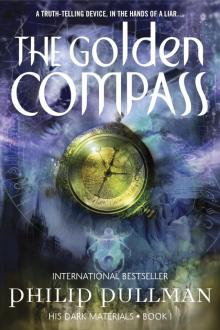 The Golden Compass
The Golden Compass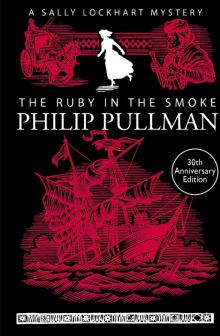 The Ruby in the Smoke
The Ruby in the Smoke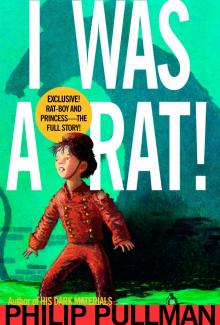 I Was a Rat!
I Was a Rat!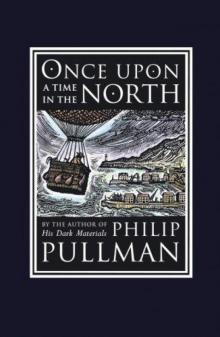 Once Upon a Time in the North
Once Upon a Time in the North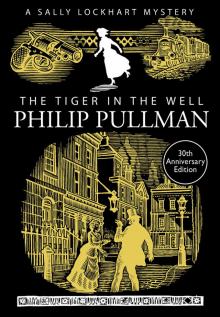 The Tiger in the Well
The Tiger in the Well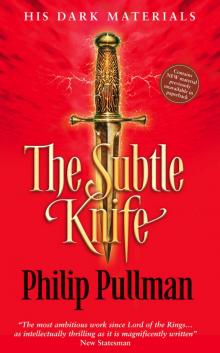 The Subtle Knife
The Subtle Knife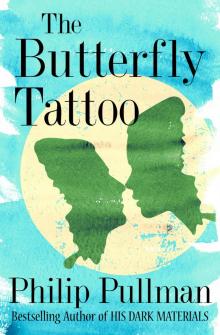 The Butterfly Tattoo
The Butterfly Tattoo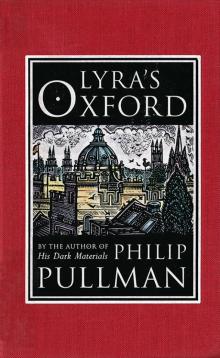 Lyra's Oxford
Lyra's Oxford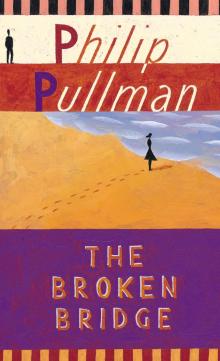 The Broken Bridge
The Broken Bridge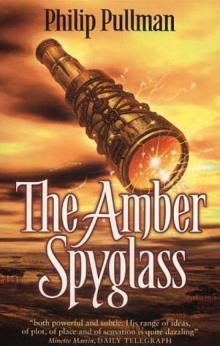 The Amber Spyglass
The Amber Spyglass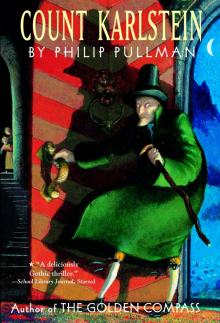 Count Karlstein
Count Karlstein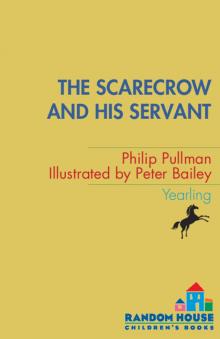 The Scarecrow and His Servant
The Scarecrow and His Servant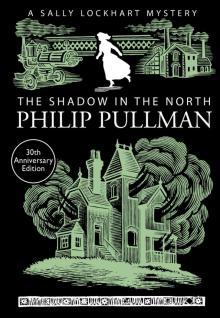 The Shadow in the North
The Shadow in the North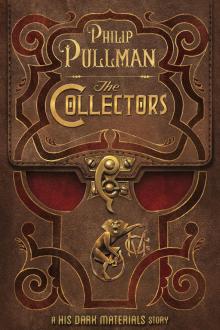 The Collectors
The Collectors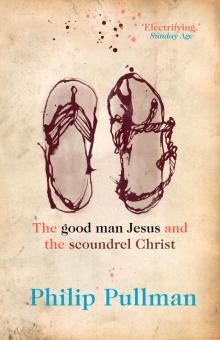 The Good Man Jesus and the Scoundrel Christ
The Good Man Jesus and the Scoundrel Christ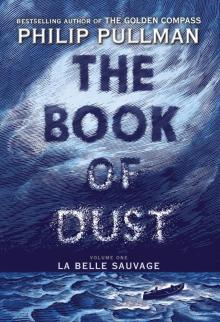 La Belle Sauvage
La Belle Sauvage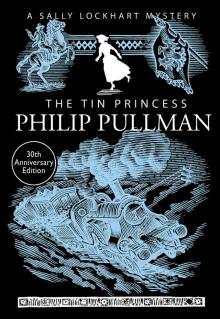 The Tin Princess
The Tin Princess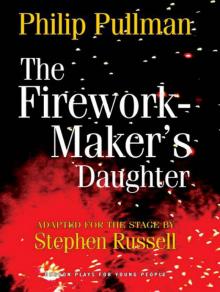 The Firework-Maker's Daughter
The Firework-Maker's Daughter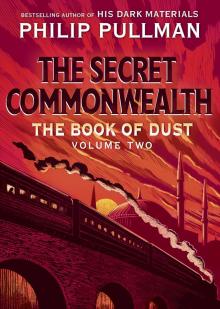 The Book of Dust: The Secret Commonwealth (Book of Dust, Volume 2)
The Book of Dust: The Secret Commonwealth (Book of Dust, Volume 2)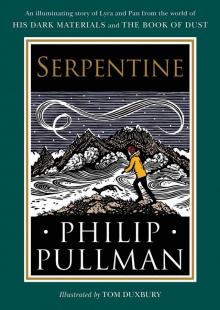 Serpentine
Serpentine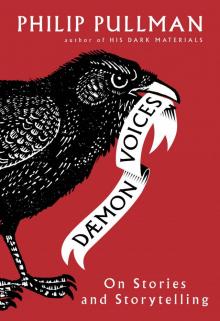 Daemon Voices
Daemon Voices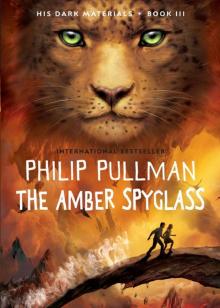 The Amber Spyglass: His Dark Materials
The Amber Spyglass: His Dark Materials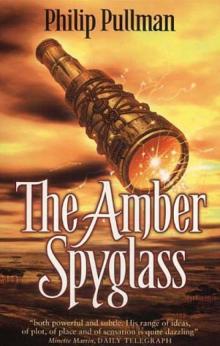 The Amber Spyglass hdm-3
The Amber Spyglass hdm-3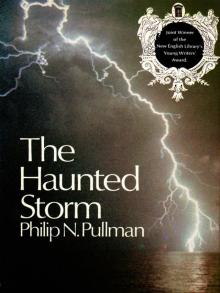 The Haunted Storm
The Haunted Storm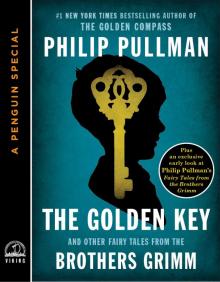 The Golden Key
The Golden Key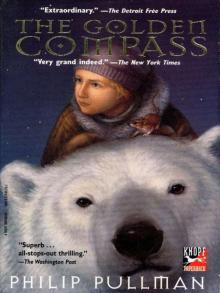 His Dark Materials 01 - The Golden Compass
His Dark Materials 01 - The Golden Compass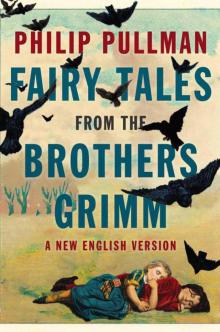 Fairy Tales from the Brothers Grimm: A New English Version
Fairy Tales from the Brothers Grimm: A New English Version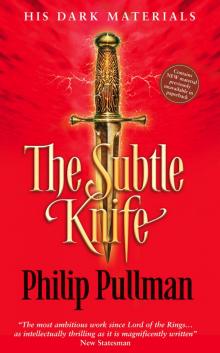 His Dark Materials 02 - The Subtle Knife
His Dark Materials 02 - The Subtle Knife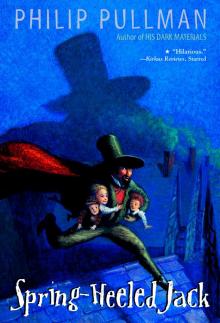 Spring-Heeled Jack
Spring-Heeled Jack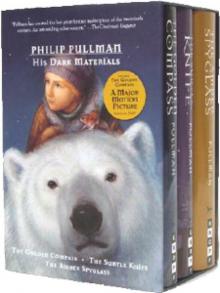 The Golden Compass hdm-1
The Golden Compass hdm-1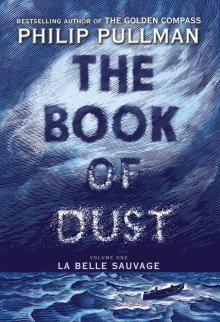 The Book of Dust, Volume 1
The Book of Dust, Volume 1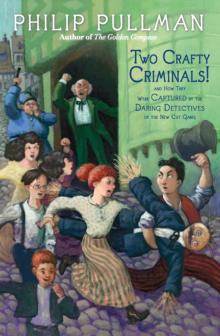 Two Crafty Criminals!
Two Crafty Criminals!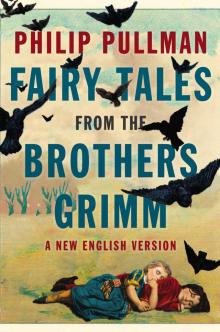 Fairy Tales from the Brothers Grimm
Fairy Tales from the Brothers Grimm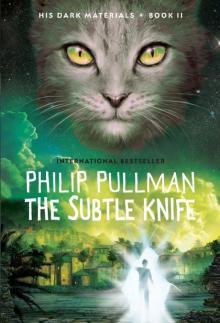 The Subtle Knife: His Dark Materials
The Subtle Knife: His Dark Materials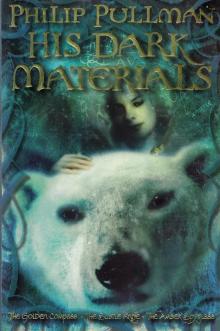 His Dark Materials Omnibus
His Dark Materials Omnibus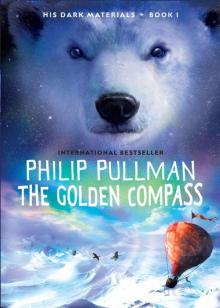 The Golden Compass: His Dark Materials
The Golden Compass: His Dark Materials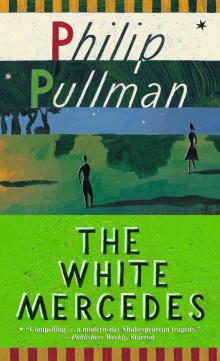 The White Mercedes
The White Mercedes